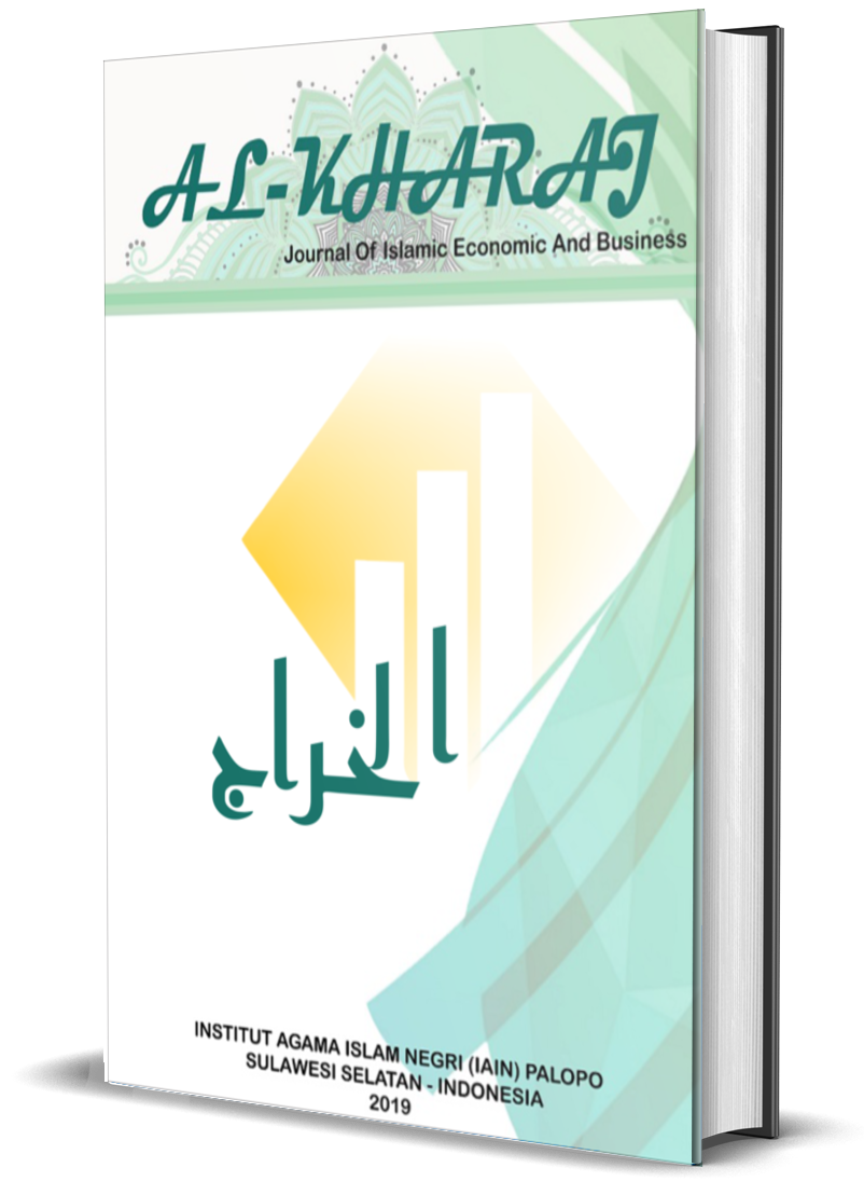The Influence Of Self Reward And Self Healing On The Consumption Behavior Of Career Women In Parepare City With Religiosity As A Moderating Variable
DOI:
https://doi.org/10.24256/kharaj.v7i4.8105Keywords:
Self Reward, Self Healing, Consumer Behavior, Career Women, ReligiosityAbstract
This study was motivated by the increasing complexity of career women's consumption behavior. This behavior is influenced not only by basic needs, but also by psychological factors such as self-reward and self-healing. Religiosity is seen as a moderating variable that can control consumption behavior, especially in the context of a religious society in Parepare City. The purpose of this study is to analyze the influence of self-reward and self-healing on the consumption behavior of career women in Parepare City with religiosity as a moderating variable. The method used is a quantitative approach with a survey design. The sample was obtained through purposive sampling of 100 career women aged 18–50 years in Parepare City. The research instrument was a Likert questionnaire, while data analysis was performed using SmartPLS through validity and reliability tests, T-tests, determination coefficients, and path analysis. The results showed that self-reward and self-healing had a significant positive effect on consumption behavior. Religiosity also had a significant effect and was proven to moderate the influence of these two psychological factors. These findings contribute to consumer behavior science and provide practical benefits for career women in managing balanced consumption.
References
Adolph, Ralph. “Pengaruh Faktor Psikologis Konsumen Terhadap Keputusan Pembelian Air Minum Isi Ulang Pada Masyarakat Plesungan Gondangrejo Kabupaten Karanganyar.” Edunomika 07, no. 02 (2023)
Ajzen Icek. (2020). The theory of planned behavior: Frequently asked questions. Human Behavior and Emerging Technologies, 2(4), 314–324
Ancok, D., & Suroso, F. N. (2011). Psikologi Islami: Solusi Islam atas problem-problem psikologi. Yogyakarta: Pustaka Pelajar.
Anggasta. “Implikasi Budaya Self-Reward Terhadap Konsumtivitas : Studi Kasus Gen-Z” Jurnal Media Akademik (JMA) 2, no. 12 (2024)
Crane, Patricia J, and Suzanne F Ward. “Self-Healing and Self-Care for Nurses.” AORN Journal 104, no. 5 (November 2016)
Deci, E. L., & Ryan, R. M. (2023). Self-determination theory in work organizations: The state of a science. Annual Review of Organizational Psychology and Organizational Behavior, 10, 89–111.
Devy Kusumaningrum. “Pentingkah Melakukan Self Reward.” Kemenkeu DJKN, 2022.
Glock, C. Y., & Stark, R. (1965). Religion and Society in Social Tension. Rand McNally and Company.
Kasser, T. (2002). The high price of materialism. Cambridge, MA: MIT Press.
Koekemoer, dkk. “The Subjective Career Success of Women: The Role of Personal Resources.” Frontiers in Psychology 14, no. March (2023)
Lazarus, R. S., & Folkman, S. (1984). Stress, appraisal, and coping. New York: Springer Publishing Company.
Muamar, Afif. “Wanita Karir Dalam Prespektif Psikologis Dan Sosiologis Keluarga Serta Hukum Islam.” Equalita: Jurnal Pusat Studi Gender Dan Anak 1, no. 1 (2019)
Norris, P., & Inglehart, R. (2011). Sacred and secular: Religion and politics worldwide (2nd ed.). Cambridge: Cambridge University Press.
Pargament, K. I. (2011). Spiritually integrated psychotherapy: Understanding and addressing the sacred. New York: Guilford Press.
Park, C. L. (2013). Religion and meaning. In R. F. Paloutzian & C. L. Park (Eds.), Handbook of the psychology of religion and spirituality (2nd ed., pp. 357–379).
Sniehotta, F. F., Presseau, J., & Araújo-Soares, V. (2014). Time to retire the theory of planned behaviour. Health Psychology Review, 8(1), 1–7.
Stark, R., & Glock, C. Y. (1968). American piety: The nature of religious commitment. Berkeley, CA: University of California Press.
Umam, Aribi Zainul. “Pengaruh Faktor Psikologis Terhadap Minat Menabung Di Bank Syariah Dengan Religiusitas Sebagai Variabel Moderasi (Studi Kasus Pada Masyarakat Kabupaten Banyumas, Jawa Tengah).” Jawa Tengah: Skripsi, 2021.
Vallerand, R. J. (1997). Toward a hierarchical model of intrinsic and extrinsic motivation. Advances in Experimental Social Psychology, Vol. 29, hlm. 271-360.
Downloads
Published
How to Cite
Issue
Section
Citation Check
License
Copyright (c) 2025 Muh Yusuf Munir, Arwin, Umaima, Dian Resky Pangestu

This work is licensed under a Creative Commons Attribution-ShareAlike 4.0 International License.
Authors retain copyright and grant the journal right of first publication with the work simultaneously licensed under a Creative Commons Attribution-ShareAlike 4.0 International License. In line with the license, authors are allowed to share and adapt the material. In addition, the material must be given appropriate credit, provided with a link to the license, and indicated if changes were made. If authors remix, transform or build upon the material, authors must distribute their contributions under the same license as the original.









